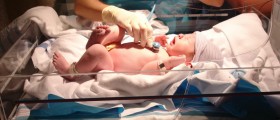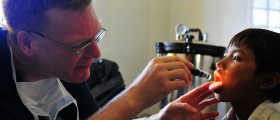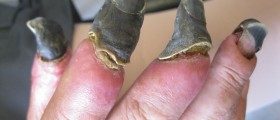
Some people say that a healthy diet, and the use of probiotic products, reduces the risk of Group B Strep. There is certainly no argument against a healthy diet, but there is no evidence that this theory has any basis in fact at all. In the United States, Group B Steptococcus screening and testing is recommended for every pregnant woman between 35 and 37 weeks. Preventing GBS might not be possible, but treating it prenatally might be effective. Antibiotics are advised in the US, while Hibiclens solutions are used more commonly in European countries.
Alternative prenatal treatments for Group B Strep include garlic (inserting it into the vagina), or tea tree oil. Tea tree oil is potent stuff, so it needs to be heavily diluted. To clear the birth canal of GBS, soaking a tampon in the tea tree oil solution and inserting it is recommended by herbalists. This may or may not cure GBS, but some women will think it is worth a try. If GBS infection is still present when labor starts, IV antibiotics or Hibiclens are the treatment options.
- www.cdc.gov/groupbstrep/about/prevention.html
- www.cdc.gov/features/groupbstrep/index.html
- Photo courtesy of Blueiridium by Wikimedia Commons: commons.wikimedia.org/wiki/File:CAMP_test.JPG

















Your thoughts on this
Loading...